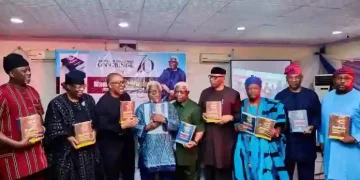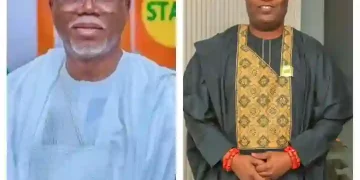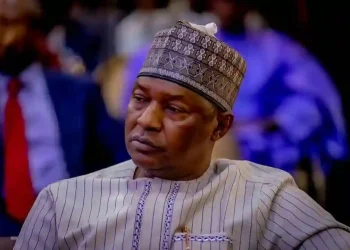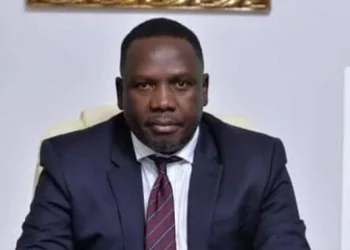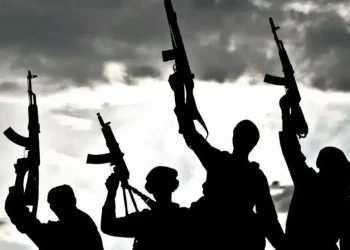The Federal Government’s passage of the Cybercrimes (Prohibition, Prevention, etc.) (Amendment) Act 2024, now operational in 2025, heralds entrenched contradictions. On paper, the legislation aims to bring digital order and curb online abuses. In reality, however, it magnifies inequality.
Sections criminalizing online harassment (Section 22—mirroring earlier codifications in Section 24 of the 2015 Act) and publishing false or misleading information (Section 19) are presented as noble tools for accountability. When viewed through the lens of enforcement, the story changes: the poor (politically powerless, digitally exposed and legally unprotected) shoulder the blunt force of this law, while the elite effortlessly slip through its cracks.
This is not merely a legal dilemma; it is a question of justice, class and democracy in the digital age.
Part I: What the Law Prescribes.:
Online Harassment and Abuse – Section 22:
Under the new law, posting rude, vulgar, offensive or indecent content with intent to embarrass or humiliate others is an offense punishable by up to 2years’ imprisonment.
This is not entirely new. The Cybercrime Act of 2015 had already addressed similar conduct under Section 24 (1), which criminalized sending “grossly offensive, pornographic, indecent, obscene or menacing” messages or false communications intended to cause “annoyance, inconvenience, danger, insult or needless anxiety.” The penalty then was 3years’ imprisonment or a fine of up to ₦7 million.
Publishing False or Misleading Information – Section 19:
The new provision explicitly targets “fake news.” Anyone who spreads deliberately false or misleading content online now faces up to 2years in prison.
While the intent is to protect society from deception, vague definitions leave room for abuse. What exactly constitutes “FALSE” information in a country where government officials frequently contradict themselves? Whose truth becomes the standard?
Part II: Enforcement and Inequality.
A Resource Gap.:
Cybercrime is undeniably a global threat. INTERPOL’s 2025 Africa Cyberthreat Assessment shows cybercrime now constitutes more than 30% of reported crimes in some African states. Yet, 90% of African nations (including Nigeria) admit they lack the training, tools and prosecutorial capacity to handle such sophisticated threats.
Nigeria does have the Nigeria Police Force National Cybercrime Center (NPF-NCCC), which engages in awareness and coordination. The reality is that prosecutions remain sporadic, selective and unequal.
Selective Prosecution.
The elite are shielded. Politically connected individuals can hire top lawyers, secure injunctions and navigate courts to avoid consequences.
For the poor, however, the law is deadly literal. A tweet born out of frustration, a WhatsApp broadcast or even a Facebook comment can be twisted into a criminal indictment. Without access to competent legal representation, many are left at the mercy of magistrates and police officers.
The Digital Divide.
Nigeria now boasts over 152 million active internet users. Yet digital literacy remains low. Millions of Nigerians are active online without a clear understanding of the risks posed by the law.
The elite enjoy the privilege of education and access. They know how to carefully word criticism, disguise satire or even hire digital strategists. The poor (especially those posting in anger, in indigenous languages or with limited education) become easy prey.
Thus, the Cybercrimes Act, instead of being an equalizing force, has deepened digital classism.
Part III: Expert Perspectives.:
Several respected voices have raised alarms about the trajectory of Nigeria’s cyber legislation:
“The Cybercrimes Act’s broad language, especially its vague definitions of ‘false information,’ ‘cyberstalking,’ and ‘harassment,’ threatens free expression and open digital discourse.”
“The Act remains insufficient in shielding Nigerian citizens from arbitrary criminalization of online expression. Reform grounded in clarity, proportionality and accountability is not only necessary, but urgent.”
“Cybercrime continues to outpace the legal systems designed to stop it. 95% of countries report inadequate training, resource constraints and lack of access to specialized tools.”
These insights underscore the real crisis: misaligned priorities. Instead of investing in capacity to tackle fraud, identity theft and large-scale scams that tarnish Nigeria’s reputation globally, the government prioritizes criminalizing insult, dissent and satire.
Part IV: The Blunt Truth.
This law, stripped of diplomatic language, is crafted to suppress, not protect.
Weaponized Vagueness.
Its ambiguous language is a prosecutorial dream but a citizen’s nightmare. Terms like “OFFENSIVE” and “FALSE” are inherently subjective. What offends one politician may simply be satire or truth to the masses.
Enforcement Inequality.
Justice in Nigeria is not blind; it peeks. The poor, voiceless and resourceless, face the full fury of the law, while the elite maneuver their way out.
State Surveillance over Protection.
This legislation expands state power rather than defending citizens. By criminalizing broad categories of speech, it grants government a blank check to silence critics under the guise of law.
Blinding Hypocrisy.
Nigeria loses billions annually to cybercrime syndicates; international scams, fraudulent wire transfers and phishing attacks. Yet, instead of focusing on dismantling these sophisticated networks, the government invests energy in jailing youths for Facebook insults.
Cultural and Class Bias.
Nigeria is a multilingual nation. Satirical or colloquial expression in Pidgin, Hausa, Yoruba or Igbo is more likely to be misinterpreted as “ABUSE” by law enforcement steeped in formal English. Thus, class and language again shape how the law is applied.
End Note: A Call for Reform.
Nigeria’s 2025 Cybercrimes Act, birthed from the 2015 foundation, is not the protective shield it claims to be. It is a blunt instrument used less to fight genuine cybercriminals and more to muzzle ordinary citizens.
Three urgent reforms are needed:
Transparency and Clarity:
The law must define “HARASSMENT,” “FALSE INFORMATION,” and “OFFENSIVE CONTENT” with surgical precision, leaving no room for abuse.
Equitable Enforcement:
Legal aid for the poor, digital literacy programs and clear prosecution guidelines are non-negotiable.
Democratic Oversight:
Civil society and the judiciary must act as watchdogs, ensuring that these laws are not weaponized against free expression.
Without these safeguards, the Act will continue to serve as a tool of suppression, a digital whip for the powerless and a shield for the privileged.
The principle is simple yet profound: If laws are not applied equally, they cease to be justice. Nigeria must choose whether it seeks order through fairness or chaos through selective repression.
By George Omagbemi Sylvester.



